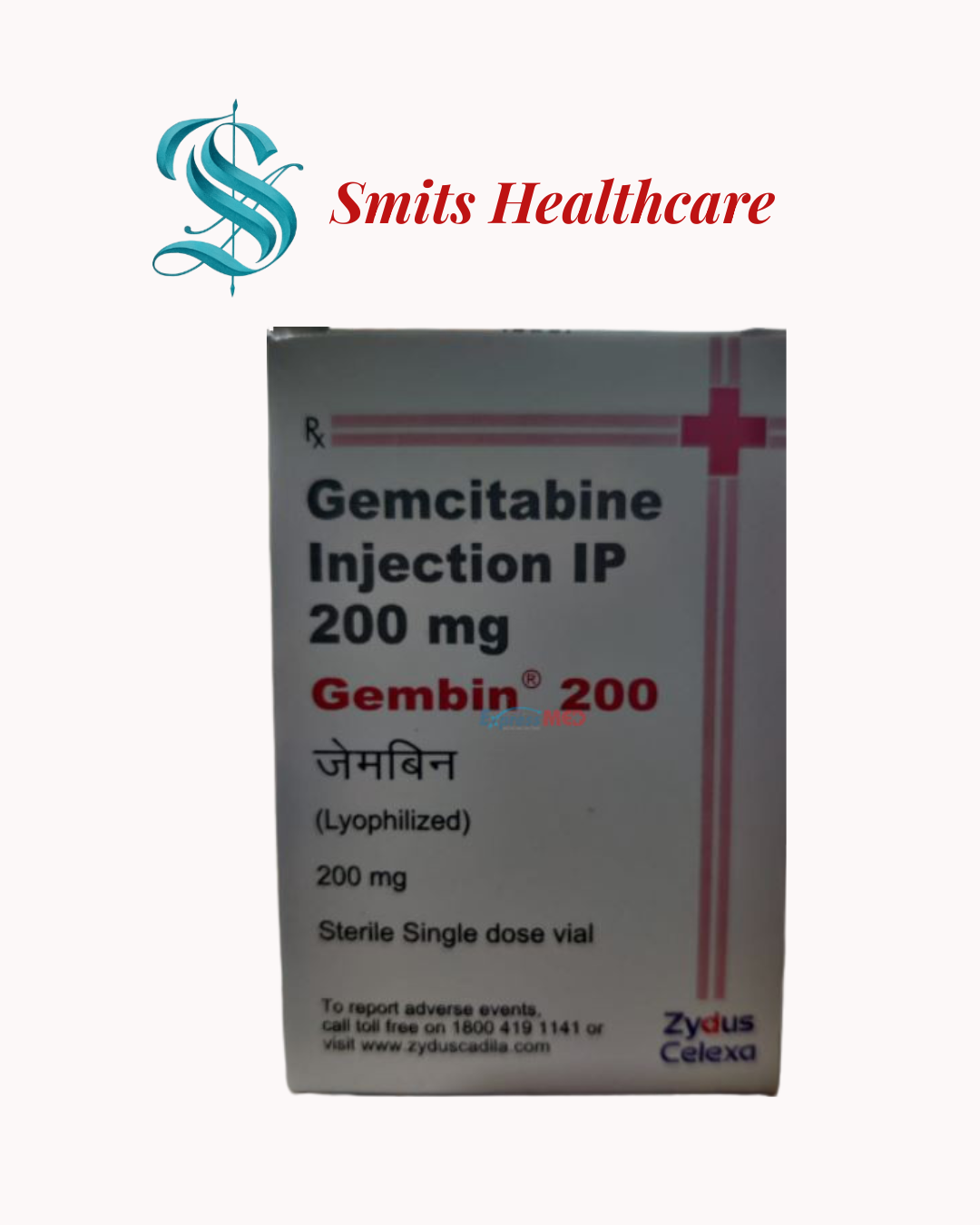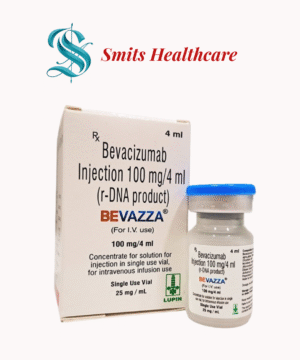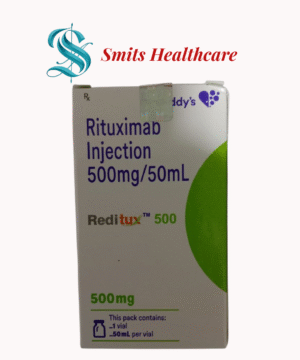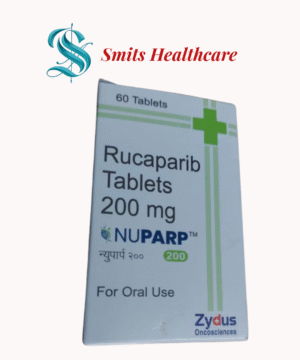Gembin Injection contains Gemcitabine, a chemotherapy medication used to treat various types of cancer. It is administered intravenously and is available in different strengths, including 200 mg and 1000 mg formulations. Gemcitabine is a nucleoside analog that interferes with DNA synthesis, inhibiting the proliferation of cancer cells.
Mechanism of Action
Gemcitabine is a prodrug that, once inside the cell, is phosphorylated to its active form, gemcitabine triphosphate. This active metabolite:
-
Incorporates into DNA: It is mistakenly incorporated into the growing DNA strand during replication.
-
Inhibits DNA synthesis: Its incorporation leads to DNA chain termination and inhibition of DNA polymerase, preventing further DNA synthesis.
Uses
Gembin Injection is indicated for the treatment of various cancers, including:
-
Pancreatic Cancer: Used as a first-line treatment for advanced or metastatic pancreatic cancer.
-
Non-Small Cell Lung Cancer (NSCLC): Administered alone or in combination with other chemotherapy agents.
-
Breast Cancer: Often used in combination with other chemotherapy drugs for metastatic breast cancer.
-
Ovarian Cancer: Used in combination with other agents for advanced ovarian cancer.
-
Bladder Cancer: Administered in combination with cisplatin for advanced or metastatic urothelial carcinoma.
Adverse Effects
Common side effects of Gembin Injection include:
-
Hematologic Toxicity: Low white blood cell count (neutropenia), low platelet count (thrombocytopenia), and anemia.
-
Gastrointestinal Symptoms: Nausea, vomiting, diarrhea, constipation, and abdominal pain.
-
Fatigue and Weakness: Generalized tiredness and weakness.
-
Hair Loss: Temporary hair thinning or loss.
-
Skin Reactions: Rash, redness, and itching.
-
-





